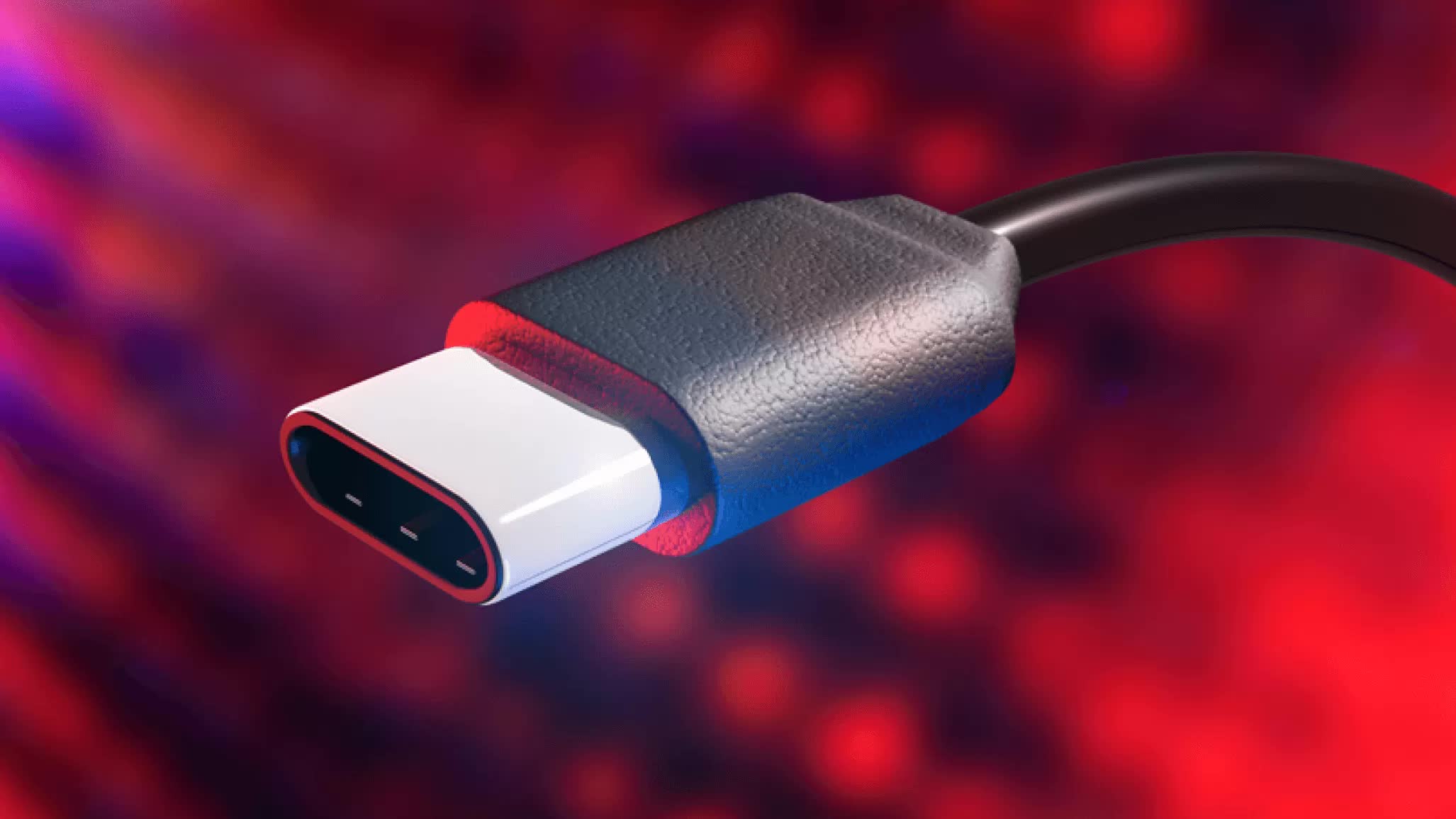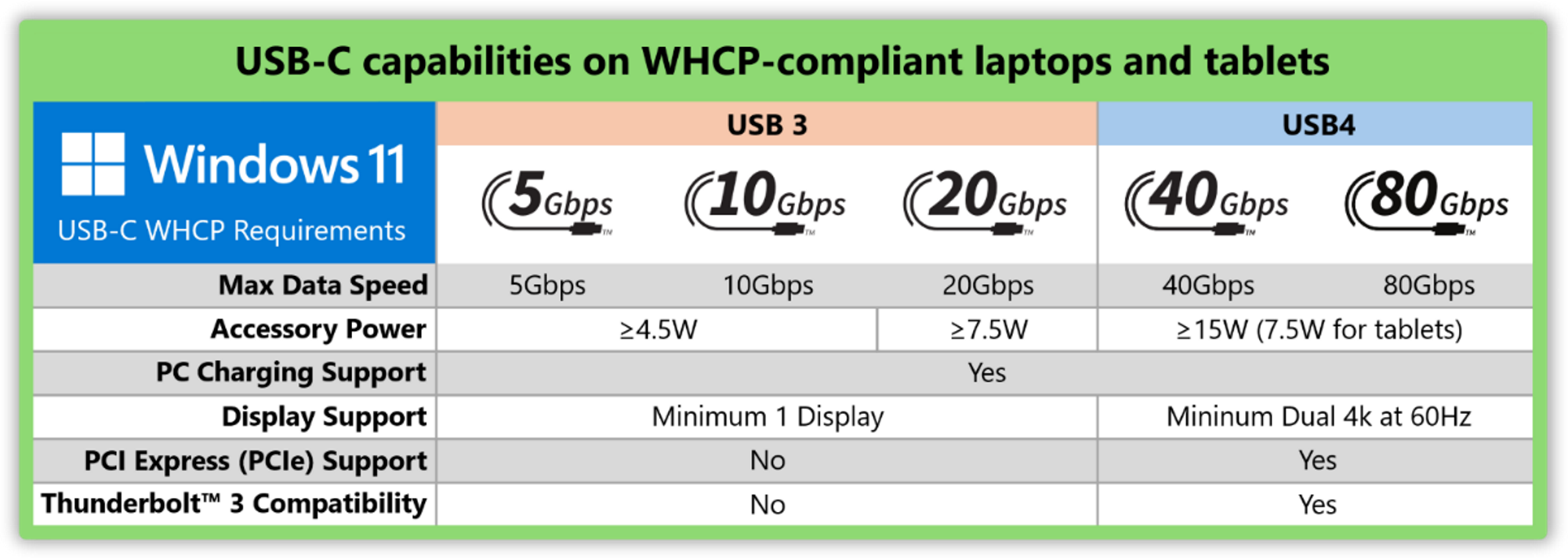In context: Despite promising a "universal" connectivity experience, the USB port has long been a source of frustration for PC users. Now, Microsoft is going the extra mile to finally address the compatibility issues and misinformation surrounding the standard – at least, for brand-new portable PCs.

Any USB-C port should be able to recharge devices, transfer files at high speed, and run external displays with ease but in practice, things are often much more complicated. According to Windows Diagnostics Data, 27 percent of PCs that are supposed to be fully compatible with the USB4 standard have experienced some form of limited functionality. Many users only discover that a specific "alternate mode" feature is missing after attempting to use it.
Ideally, every USB-C port would deliver up to 240W of power and support all features defined by the USB Implementers Forum. However, not all USB-C ports are created equal, and manufacturers rarely provide enough information for users to understand which port supports which functions on a given device.
Now, Microsoft is aiming to make the "universal" promise of USB-C a reality, thanks to a new set of requirements built into its Windows Hardware Compatibility Program.
Redmond has outlined two specific goals for the initiative. The first is that the three primary USB-C features – data transfer, charging, and display output – should "just work" on all USB-C ports, ensuring that all USB peripherals (from USB 1.0 to USB 3.x) function as expected. The second goal is that systems supporting 40 Gbps USB speeds must be fully compatible with USB4 and Thunderbolt 3 products.
From now on, all Windows PCs certified to run Windows 11 version 24H2 must meet Microsoft's new baseline USB-C requirements. According to Microsoft, users will be able to "trust" their new PCs, as the updated Windows Hardware Compatibility Program will mandate that OEMs include USB-IF – certified silicon. Microsoft will also supply certified USB controller drivers, enabling feature and security updates to be delivered directly through Windows Update for a more consistent and streamlined software experience.
In addition, WHCP-certified systems that support USB 40Gbps or 80Gbps functionality will offer enhanced connectivity. All USB-C ports on these systems will be required to deliver uniform data transfer speeds, support external GPUs via PCI Express tunneling, and drive up to two 4K DisplayPort monitors at 60Hz.
Microsoft stressed that these new USB-C capabilities don't result from a magic spell, but rather from a "tightly choreographed process" that begins with user feedback and telemetry. Based on this data, Microsoft engineers write automated test cases using the Windows Hardware Lab Kit. Manufacturers then run these tests on their devices and peripherals, submitting the results back to Microsoft.
The company expects that "most" PCs sold in the coming years will fully align with WHCP's vision for truly universal USB-C connectivity.
Microsoft is addressing USB-C "port confusion" with a new hardware certification program
